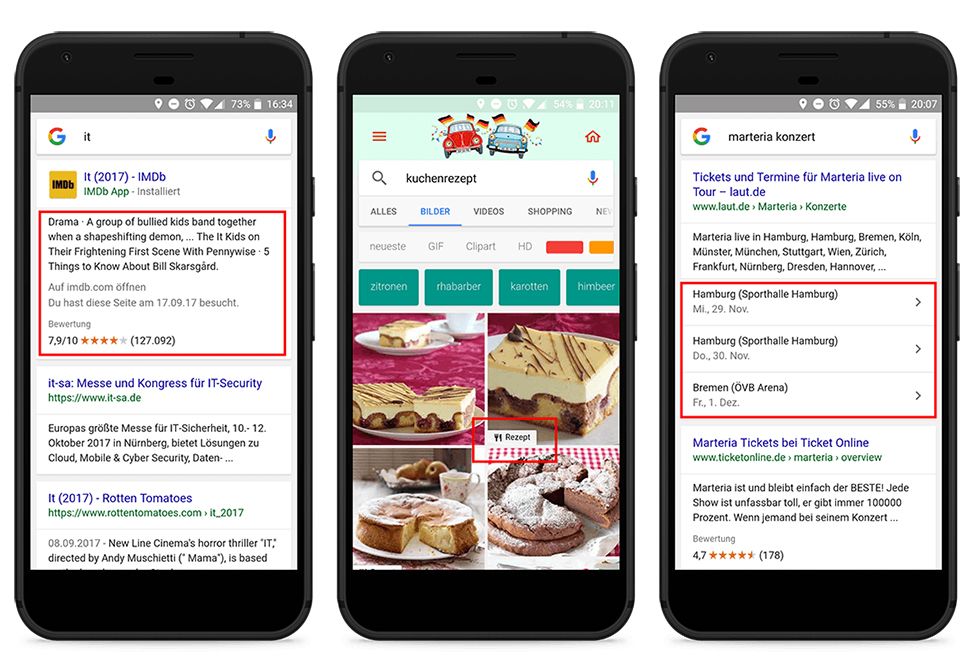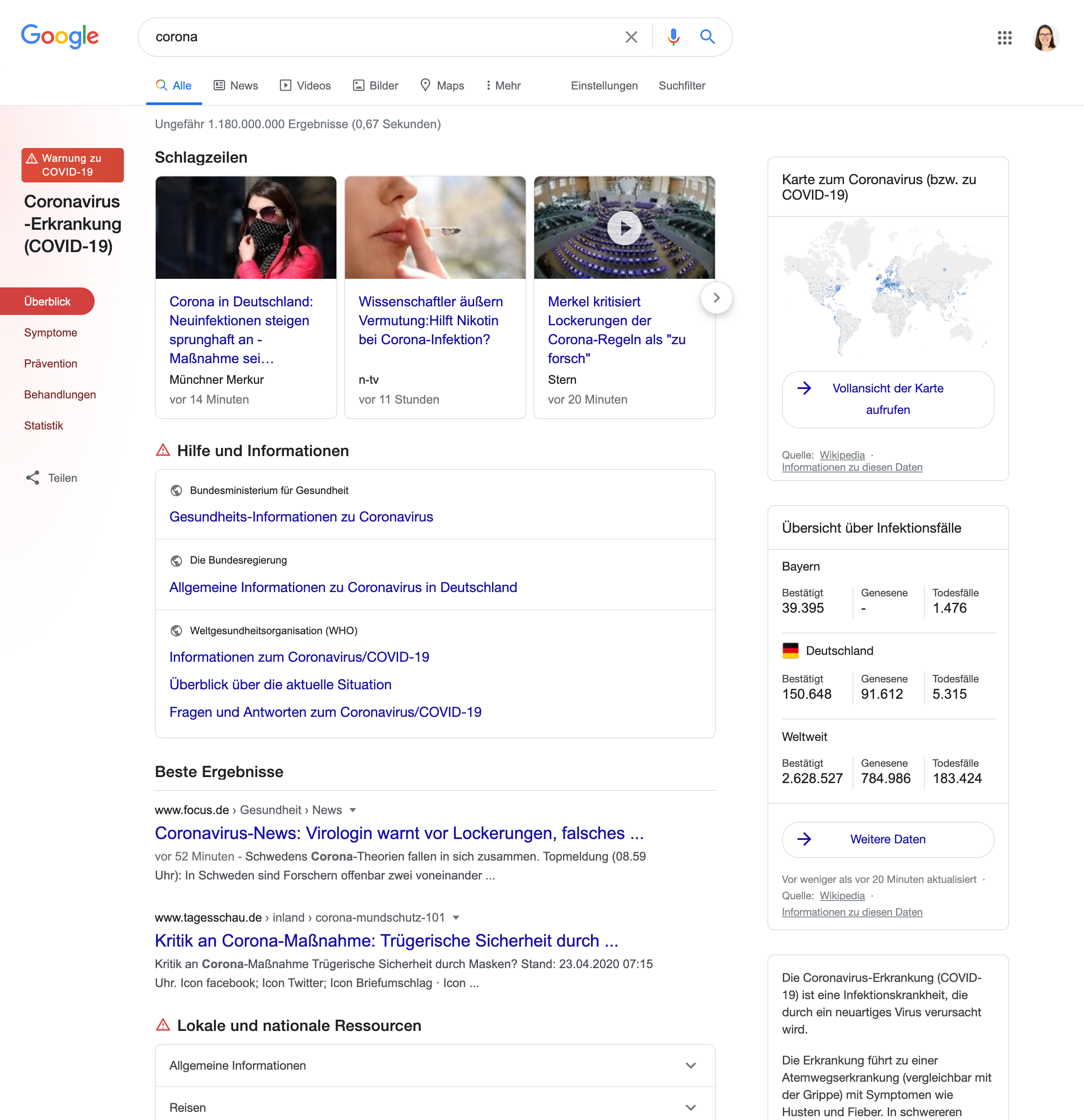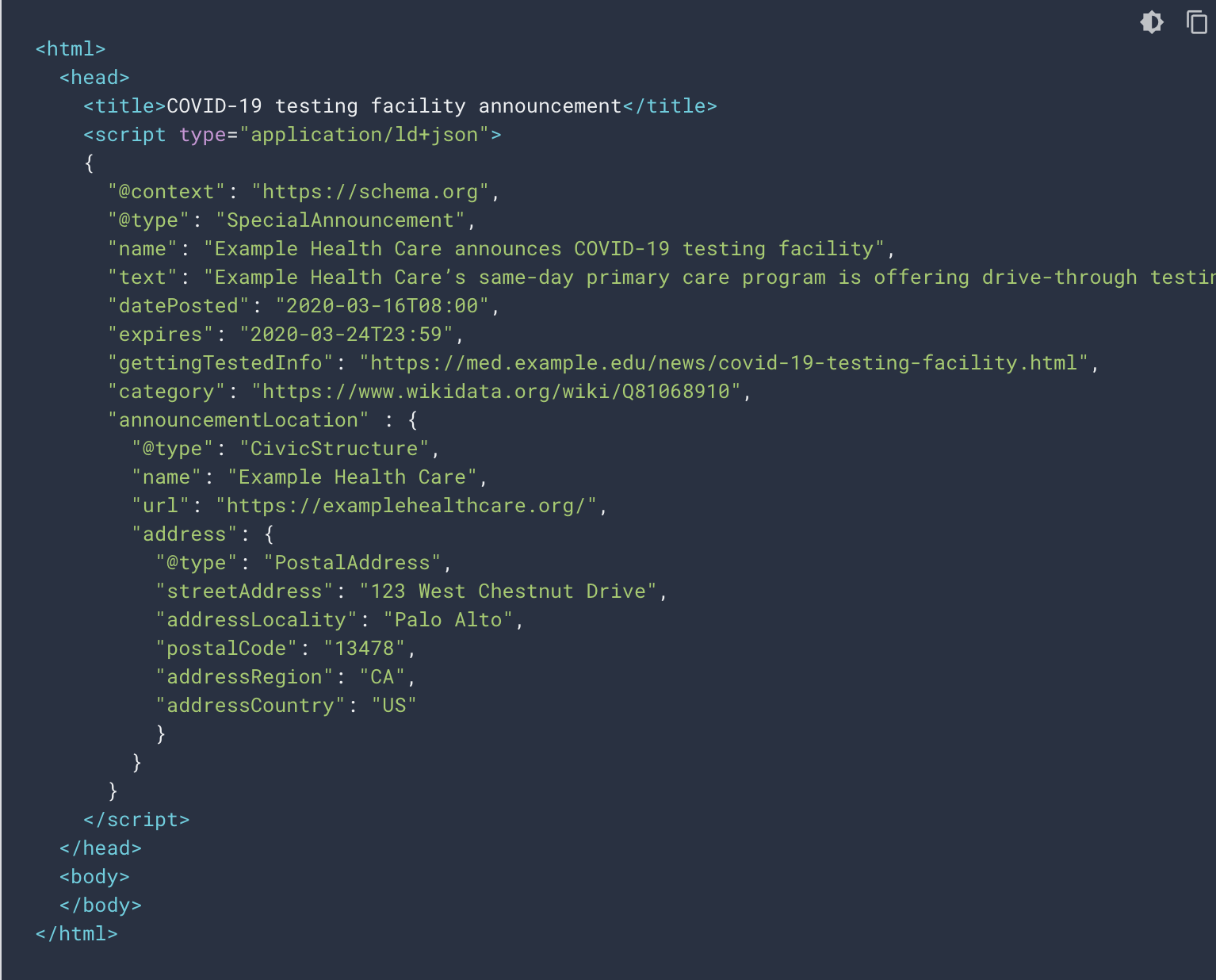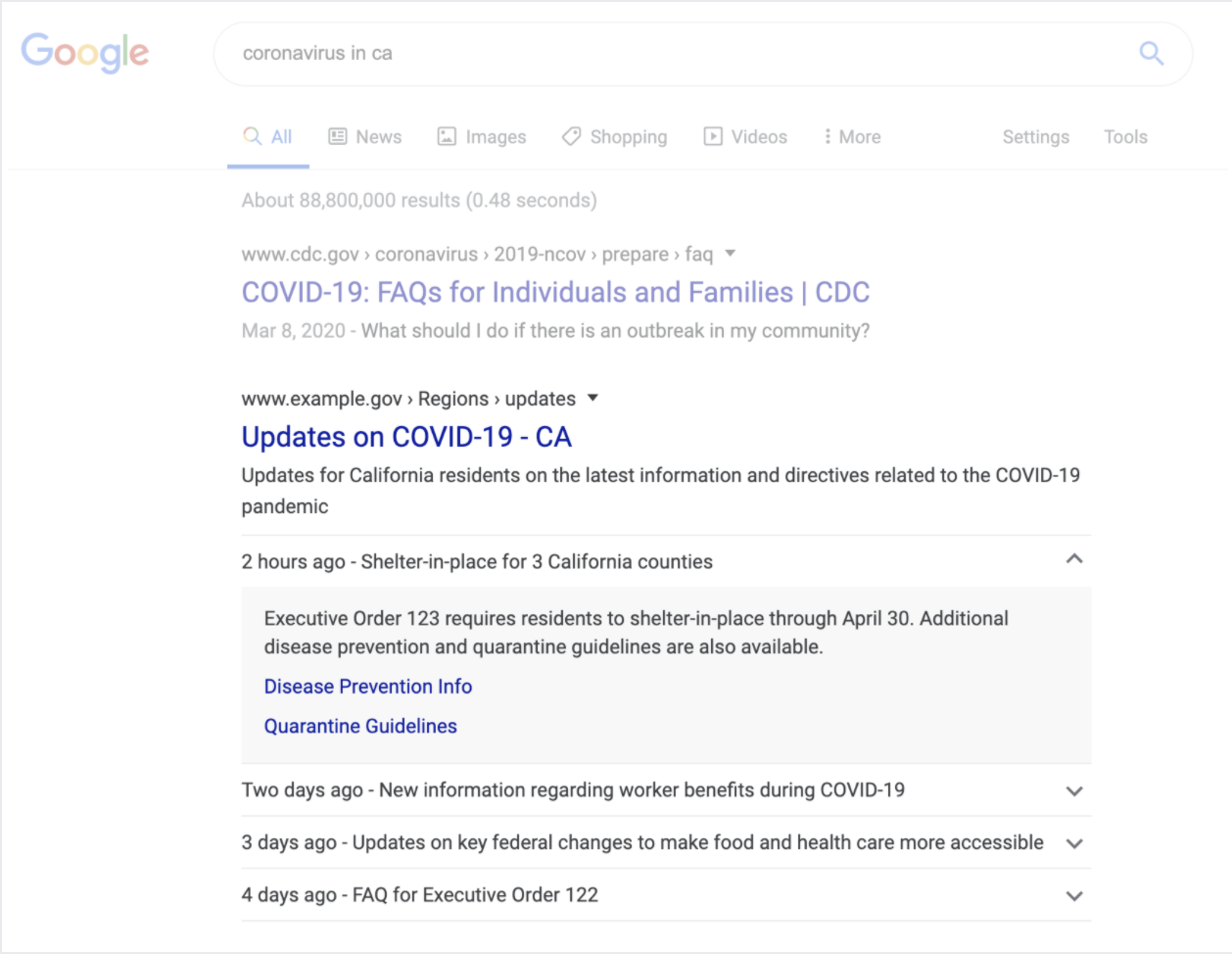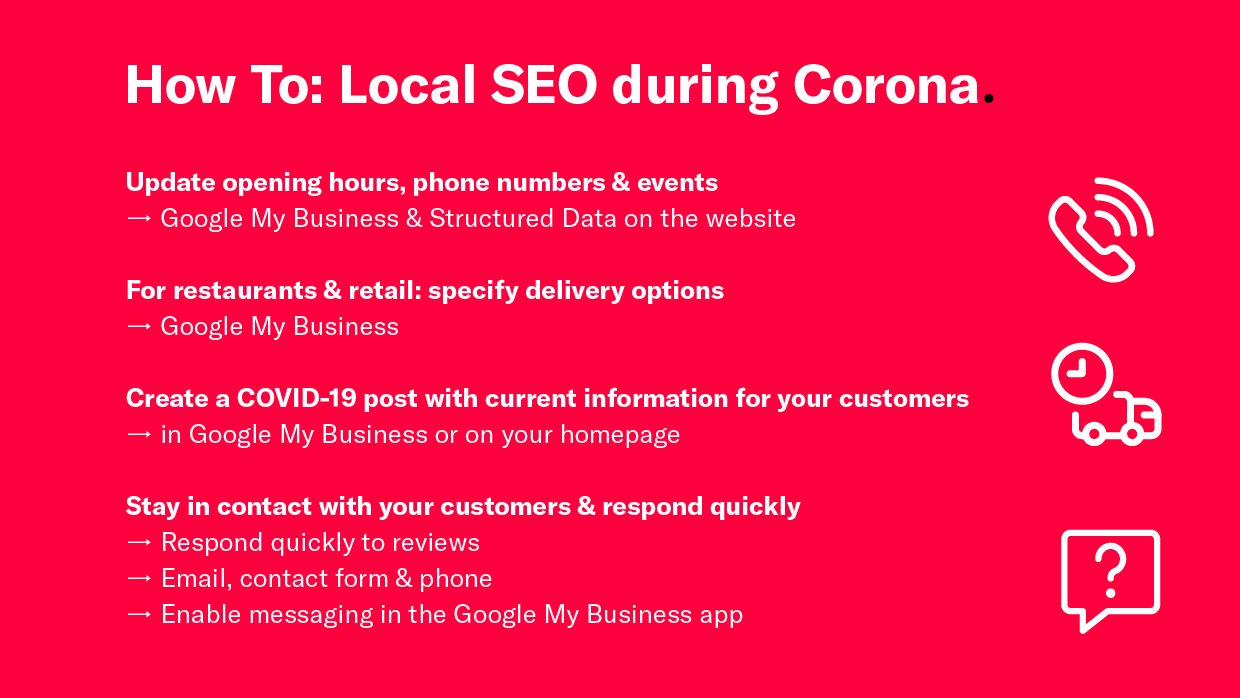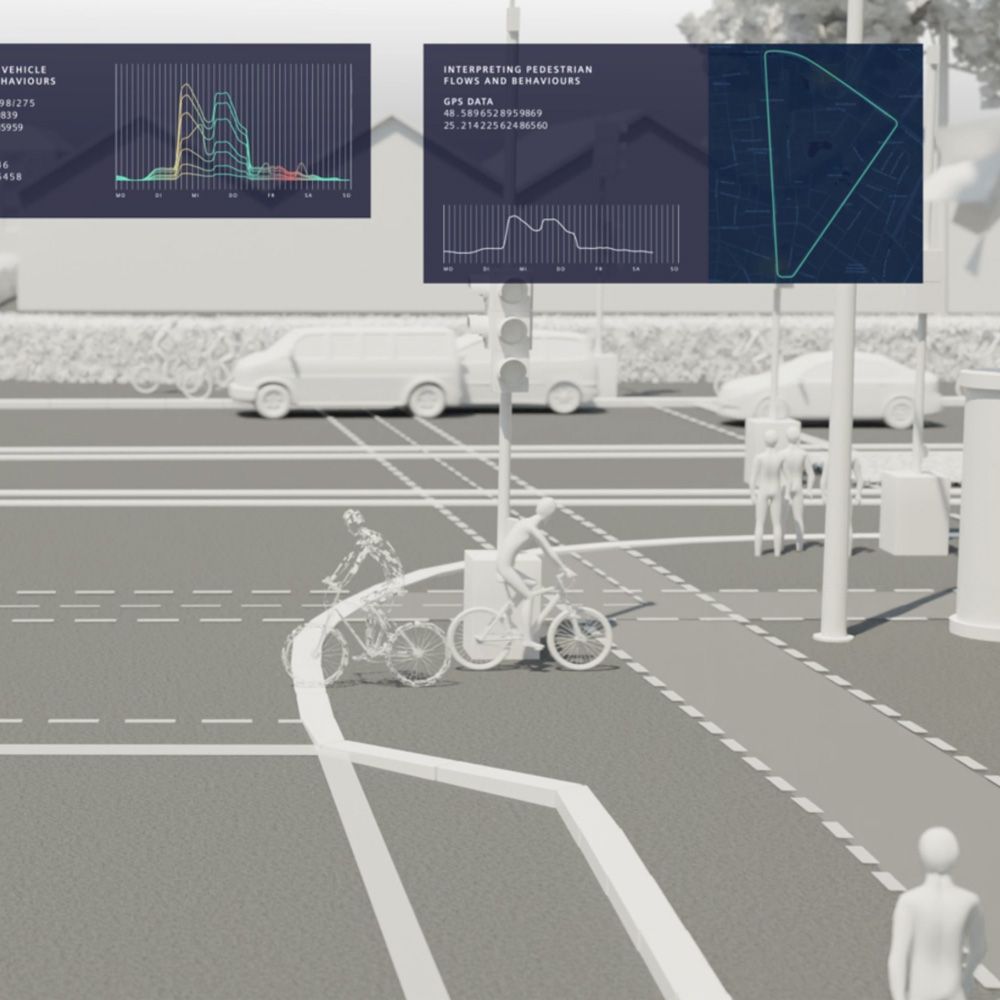Additional functions for restaurants and retail stores.
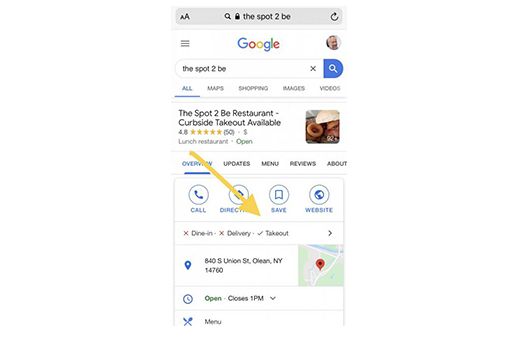
Google has also published special tips and features for restaurants and retailers. These features are currently available in the US and will be rolled out to other countries on a piecemeal basis. It is not yet known when they will be available in Germany.
Restaurants can use the Google My Business listing to indicate whether they are currently delivering food or whether you can pick up food from them (see picture below: Dine-in, Delivery and Takeout). In addition, Google currently allows you to add terms such as "Takout available" to the restaurant's name. This would not be accepted under normal circumstances. In addition, it is also recommended to update the menu if another selection of dishes is available.
Various delivery and pickup options are also available for retailers: Pickup, delivery, curbside pickup or in-store shopping. This information can also be uploaded via an Excel spreadsheet collected for multiple locations.
